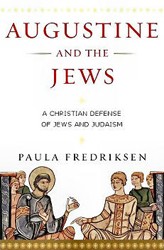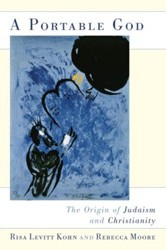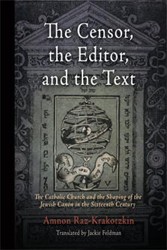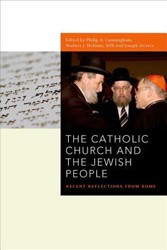The Promise, a collection of meditations on the Gospel of Matthew written by the late Cardinal Jean-Marie Lustiger, is actually a statement of two promises. As such it articulates both the “promise” of Israel as the Elect people of God, and the “promise” that Jesus is fundamentally their Redeemer and Savior.
Given the tension in the mutual promises, the following is probably worth noting: two years ago, I attended an interfaith dinner hosted by a rabbi at a kosher New York restaurant. The group consisted mostly of Catholic priests from France, including four cardinals. I spoke to the group on the subject of my then forthcoming book, “Moses and Jesus: A Conversation,” whose premise is a fictional dialogue between the two men that takes place in heaven, the day after the crucifixion. In it, Moses openly questioned Jesus’ “Good News.”
Before I spoke, Cardinal Lustiger, the former archbishop of Paris, sat next to me, bedecked in his vestments. With consummate grace, he whispered in my ear, “How does it, the struggle, turn out?” His English was poor and my French non-existent. So he asked his friend, an American rabbi seated nearby who too did not speak French, to translate “struggle.” To my amazement, he inquired in Yiddish. It should not have been astonishing — His Eminence, after all, as I well knew, was born a Jew. Cardinal Lustiger had been raised by Catholic foster parents and effected his conversion some time after his mother was murdered in Auschwitz.
Remarkable, though, was the evident nervousness with which he queried me as to how Jesus had fared in response to Moses’ fictionalized challenges to him over the proper meaning of Scripture. It was almost as if Cardinal Lustiger had a foot in each camp — that he continued to endure an interminable struggle within himself. And, I came to know later that, having anticipated his death last year, he had left instructions that before his majestic funeral at Notre Dame Cathedral, his cousin, a Holocaust survivor, would say kaddish in his memory outside. The struggle continued!
Yes, Cardinal Lustiger seemed to know that two conflicting covenants continued to marinate within him. He was, thus, clearly aware that, in his words, certain of The Promise’s passages “might seem disconcerting or even excessive to Jewish readers, and certain passages disconcerting or even excessive to Catholic readers.” True, His Eminence greatly desired outreach and encounters with Jews and, in fact, made uncommon efforts to that end. To underscore the point, he reminds his readers that the Gospel of John memorialized Jesus’ teaching to a Samaritan woman that “Salvation is from the Jews.”
But, make no mistake, notwithstanding Cardinal Lustiger’s thoughts of inner conflict that he may have revealed in either personal reverie or private allusions, his belief in Jesus and the Church, particularly as articulated in The Promise, were as strong and unyielding as Christianity’s world-changing moment at Calvary. Yes, he was ever-mindful of the cultural import of his Jewish roots, but, unmistakably, for him, Jesus is “the Way” and the only truth — “truth” revealed both intellectually and spiritually as The Promise.
But one cannot help but wonder. When I began to address the assembled priests at the dinner two years ago, I sensed that I had created a minor tension in the room by first explaining that I feared that my late grandfather, a refugee who escaped the anti-Semitism of Eastern Europe at the turn of the century, might be looking down at this “ecumenical” event with trepidation. The tension broke when I — looking upward — said, “Not to worry grandpa; you and I are priests (kohanim), as are these men. We’re in good company.” The Cardinal’s friend, the rabbi who translated for him from Yiddish, privately told me later that evening: “If you worry about your grandfather’s thoughts this evening, consider the thoughts of the Cardinal’s late mother.”
I have, indeed, considered them a number of times. Just as I have considered the meaning of Cardinal Lustiger’s comment in an earlier volume, Choosing God — Chosen by God (Ignatius Press, 1991), that he had been drawn to Catholicism, and had told his birth parents of his desire to be baptized some years before his mother was taken from him.
Was that the “God’s honest” truth? Was it a trick that the mind plays on one? Was it an effort to make his decision to convert seem more a choice than an obligation imposed on him? Alas, it is hard to know.
Perhaps reading The Promise will help the reader to decide for himself.





